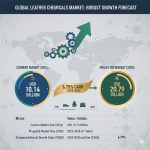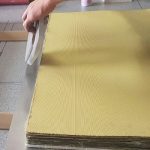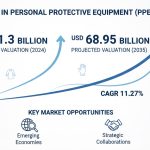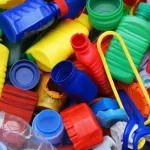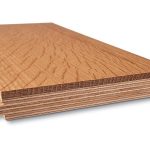Global Textile Recycling Market
As stated in our extensive report; the Global Textile Recycling Market accounted for USD 6.5 Billion in the year 2022 and is forecast to reach USD 9.9 Billion by 2030 at a CAGR of 6.2%
The Textile Recycling market is growing rapidly due to increasing consumer demand for sustainable products, rising environmental concerns, and government regulations to reduce waste. Recycled fiber is made from post-consumer waste, such as clothing, carpets, and upholstery, and is used to create new textiles. Reused textiles involve collecting, sorting, and redistributing used clothing and other textiles for second-hand use. Several key players in the Textile Recycling market include Textile Recycling companies, textile manufacturers, and retailers. Some notable companies in the market include Patagonia, Levi Strauss & Co., and H&M, which have implemented Textile Recycling programs to reduce waste and promote sustainability. Overall, the Textile Recycling market is poised for substantial growth in upcoming years, driven by increased awareness of environmental issues and the growing demand for sustainable products.
Click To Get a Free Sample On the Research Study

However, factors such as lack of awareness, quality issues, infrastructure, and limited availability of textile waste will slow down market growth. Another factor responsible for decreased growth is cost. Both in terms of the recycling process and the cost of recycled products. This is expected to deter future investors as economic scale-up becomes difficult.
Key Factors Influencing Textile Recycling Market Growth
The growth of the global Textile Recycling market can be attributable to the following:
- Consumers and businesses are increasingly aware of the textile industry’s environmental impact, leading to a growing demand for sustainable products and processes. This awareness drives the growth of the Textile Recycling market as more people seek to reduce waste and use recycled materials.
- Many governments are implementing regulations and policies to reduce waste and promote sustainable practices. These policies often incentivize businesses to adopt sustainable practices, such as Textile Recycling. As a result, Textile Recycling is becoming more attractive for companies, leading to increased investment in the industry.
- Advancements in technology, such as advanced sorting and processing methods, are making Textile Recycling more efficient and cost-effective. New technologies are also allowing recycled textiles to meet higher quality standards, increasing the demand for recycled materials.
- The circular economy model, which aims to minimize waste and maximize resource efficiency, is gaining momentum in the textile industry. As a result, more businesses are adopting circular economy initiatives, such as Textile Recycling, to reduce waste and create a closed loop for textile production.
- Collaboration between stakeholders in the textile industry, such as Textile Recycling companies, textile manufacturers, and retailers, is driving innovation and growth in the industry. Partnerships between these stakeholders enable the development of new recycling processes and technologies and the creation of new business models that promote sustainability.
Asia Pacific Region to Take Over the Market
Geographically, the Asia Pacific region is also a significant player in the Textile Recycling market, driven by the region’s stringent environmental regulations and growing demand for sustainable products. Moreover, the Asia Pacific region is set to be the fastest-growing market for Textile Recycling, driven by the region’s rapid economic growth, increasing population, and growing awareness of environmental issues.
Conclusion
The Textile Recycling market is poised for substantial growth in upcoming years due to increased awareness of environmental issues and the growing demand for sustainable products.
The well-known players of the Global Textile Recycling Market include Worn Again Technologies (UK), Lenzing Group (Austria), Birla Cellulose (India), BLS Ecotech (India), Ecotex Group (Germany), The Boer Group (Germany), Unifi Inc. (U.S.), and others.
![[Market Research Reports] – Research Google News Blog | VMR.Biz](https://www.vmr.biz/wp-content/uploads/2022/12/logo-removebg-preview.png)


